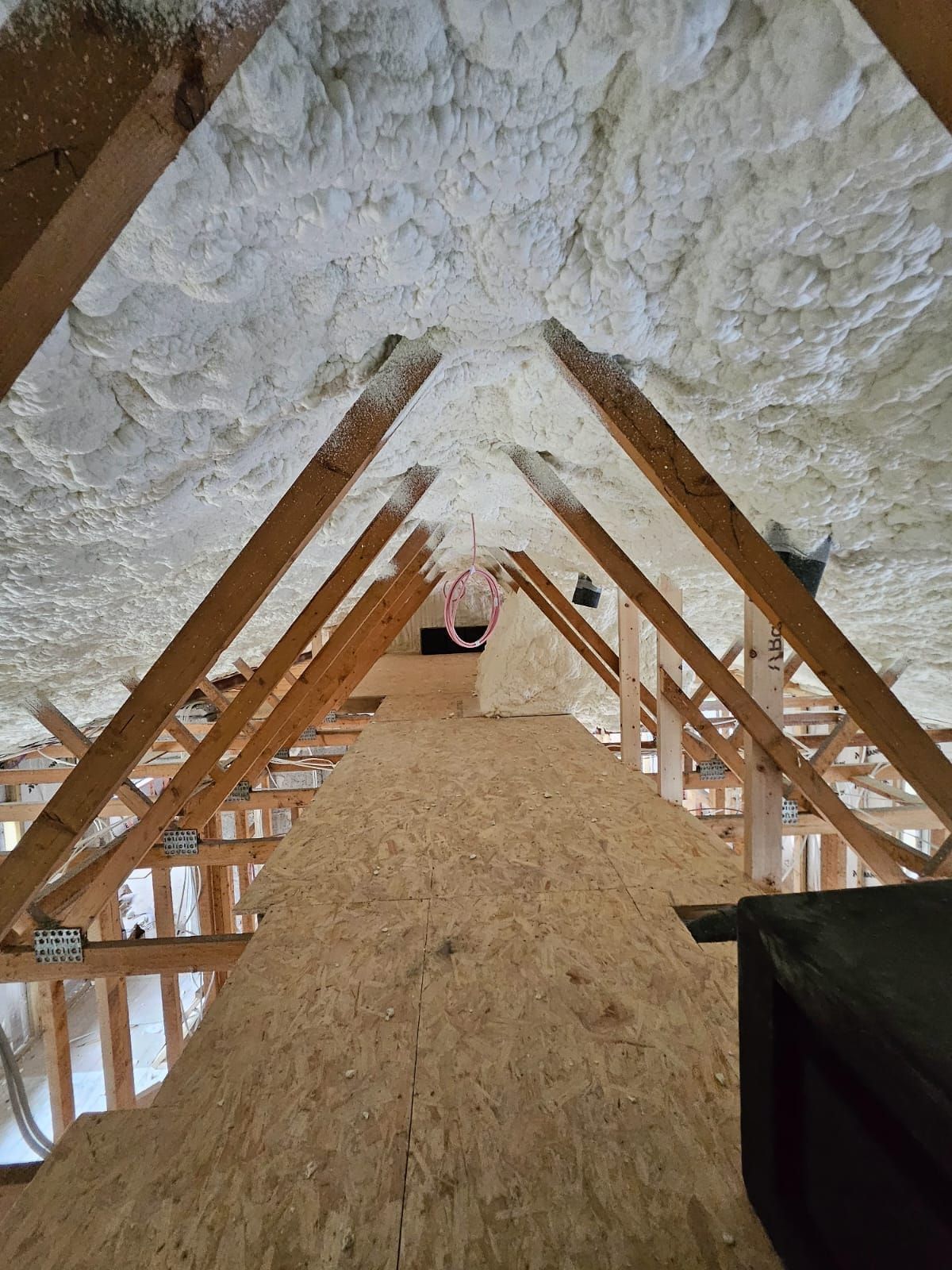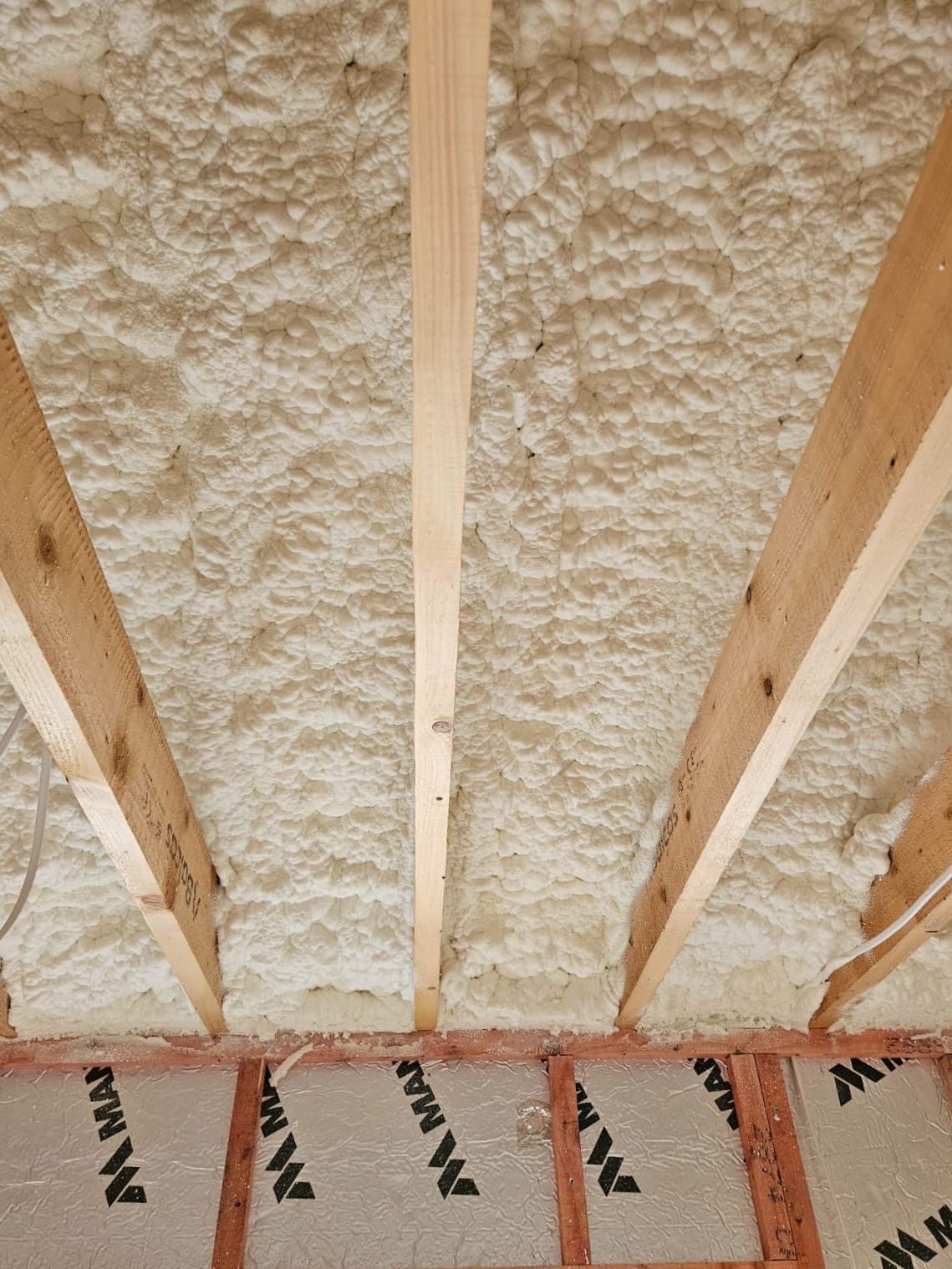Attic Spray Foam Insulation Services in Ireland
Protect your home’s energy efficiency with high-quality attic spray foam insulation. This essential service prevents heat from escaping through your attic, helping to maintain warmth in winter and coolness in summer, and significantly cutting down on energy bills.
Why Choose Attic Spray Foam Insulation?
Attic spray foam insulation is a top choice for homeowners looking to reduce energy costs and increase comfort throughout their homes. Attics are one of the primary areas where heat escapes, leading to higher heating bills in winter and uncomfortable indoor temperatures. Spray foam insulation fills all gaps and seals off spaces where air can escape, creating an airtight barrier. This ensures your home stays warmer in winter and cooler in summer without the need for extra heating or cooling. Unlike traditional insulation materials, spray foam does not settle or lose its insulating properties over time, making it a long-term, cost-effective investment.
Additionally, attic spray foam insulation contributes to better indoor air quality. It minimizes dust, allergens, and pollutants that may enter from the roof area, creating a healthier living environment. Spray foam is also resistant to moisture, preventing mould and mildew growth in attics, which can be prone to dampness. With benefits that extend beyond energy savings, spray foam insulation in your attic is a step toward a more comfortable, efficient, and healthier home.
Open Cell vs. Closed Cell Spray Foam for Attics
When insulating attics, it’s essential to choose the right type of spray foam to match the specific needs of your space. Open-cell spray foam is more flexible and expands upon application, filling every nook and cranny in irregular attic spaces. This makes it ideal for soundproofing, as it reduces noise transfer from the outside or between floors. It’s also highly effective in regulating humidity and is often preferred for homes with attic ventilation, where a breathable insulation material is beneficial.
Closed-cell spray foam, on the other hand, is more rigid and offers higher insulating properties due to its denser composition. It is water-resistant and adds structural strength, making it a solid choice for unventilated attics or homes exposed to extreme weather conditions. Closed-cell foam can create a waterproof barrier, reducing the risk of leaks and moisture damage. By selecting the right spray foam type, you can ensure that your attic insulation will meet your home’s thermal, acoustic, and structural needs, providing comfort and savings for many years.
Benefits of Attic Spray Foam Insulation

Improved energy efficiency and reduced heating costs

Enhanced soundproofing for a quieter home environment

Reduced heating bills by minimising heat loss through the roof

Increased comfort in all seasons, with balanced indoor temperatures

Prevention of moisture, mould, and mildew

Eco-friendly and durable, with a long lifespan
Frequently Asked Questions
What is the lifespan of attic spray foam insulation?
Attic spray foam insulation is highly durable and can last over 40 years with proper installation and minimal maintenance. It maintains its performance throughout its lifespan, ensuring continued energy savings and comfort for your home.
Is spray foam insulation safe for older homes?
Yes, spray foam insulation can be safely installed in both new and existing homes. It adapts to various spaces and helps improve energy efficiency without compromising the structure of older homes.
Will attic spray foam insulation help reduce noise?
Absolutely. Open-cell spray foam is particularly effective at soundproofing, as it absorbs sound and reduces noise transfer. This is beneficial if you live in a noisy area or want to minimise noise between floors.
Does spray foam insulation require maintenance?
Contact usOnce installed, spray foam insulation requires minimal maintenance. It does not settle, compress, or lose its insulating properties over time, making it a long-lasting insulation choice for your attic.
Can spray foam insulation prevent mould growth?
Yes, spray foam insulation is resistant to moisture, which helps prevent mould and mildew. By controlling humidity and sealing out water, it keeps your attic dry and reduces the risk of mould-related issues.
Is spray foam insulation suitable for all types of attics?
Spray foam insulation works well for most attic types, whether ventilated or unventilated. With open-cell and closed-cell options available, you can choose the most suitable type based on your attic’s specific requirements.




